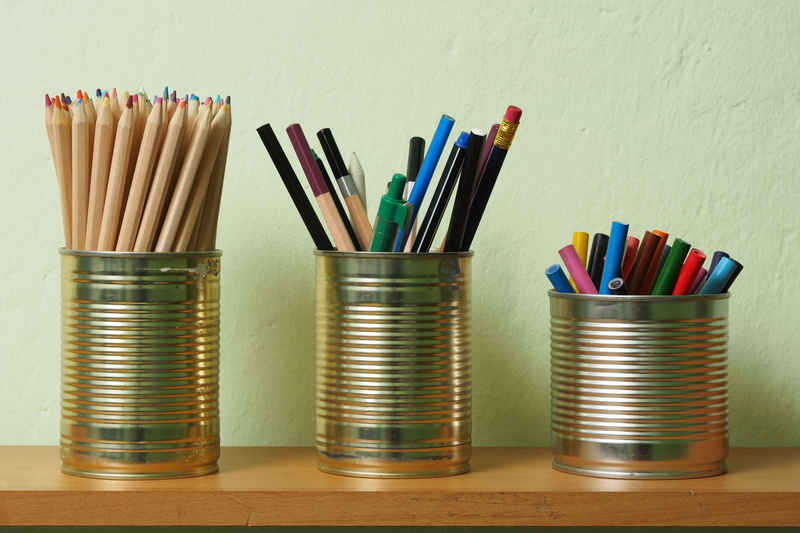How to Reduce Expenses on Bulky Waste Item Disposal
Bulky waste items--such as old furniture, broken appliances, mattresses, and large pieces of debris--can quickly become a headache when it's time to dispose of them. Not only do these items take up a lot of space, but their disposal can also be costly. Whether you're a homeowner, property manager, or small business owner, discovering effective methods to cut costs on bulky waste disposal can result in considerable savings.
Understanding Bulky Waste Item Disposal
Before learning how to save money, it's crucial to understand what qualifies as bulky waste and why disposal costs can be high.
- Bulky items: Include sofas, wardrobes, mattresses, large appliances (washing machines, refrigerators), carpets, and bathroom fixtures.
- Special handling: Bulky items are often too large for regular garbage collection, requiring separate logistics.
- Disposal fees: Many municipalities or private haulers charge premium fees because of the size, weight, or nature of the items.
- Environmental impact: Some items contain hazardous materials and must be handled with care.

Why Are Bulky Waste Disposal Costs So High?
Disposing of unusually large or heavy waste involves extra work and resources:
- Specialized vehicles and labor are needed to collect and transport these objects.
- Landfills may charge higher tipping fees for large loads.
- Treatment or recycling of certain materials (like electronics or mattresses) involves extra costs.
- Local authorities typically pass on administrative and processing costs to the user.
Proven Strategies to Minimize Bulky Waste Disposal Expenses
Now, let's explore practical and cost-cutting approaches to manage bulky waste item removal efficiently and affordably.
1. Reuse and Repurpose
One of the simplest ways to reduce disposal costs is to give your bulky items a second life.
- Donate to charities: Many organizations such as Goodwill, Salvation Army, or local shelters accept gently used furniture and appliances.
- Offer items online: Platforms like Facebook Marketplace, Craigslist, or Freecycle let you give away or sell large items.
- Community exchanges or garage sales: You can organize a swap event or yard sale to help items find new homes locally.
- Creative repurposing: Old furniture or wood can be upcycled into decorative pieces or DIY projects.
*This not only saves you money but benefits your community and minimizes landfill waste!*
2. Bulk Collection Scheduling and Coordination
Municipalities often offer scheduled bulky waste pickups for residents. Here's how to maximize these services:
- Take advantage of free pickup days: Check your city or county's calendar for scheduled bulky waste collections and plan accordingly.
- Coordinate with neighbors: If you're charged by the load, team up with nearby residents to split the cost.
*Tip:* Always check restrictions on the type and number of items accepted during bulky waste pickups to avoid additional fees.
3. Dismantle and Downsize Items
Large objects are less expensive to dispose of when they're broken down into smaller, manageable pieces.
- Disassemble furniture: Remove legs from tables or sofas, break cabinets into panels, or roll up carpets. Smaller components may fit into standard trash bins, reducing or even eliminating the need for special collection.
- Remove non-essential parts: For appliances, remove detachable components and metal parts for recycling.
*This effort reduces labor for hauliers and can help you avoid excess volume charges.*
4. Utilize Civic Amenity Sites and Recycling Centers
Most areas feature designated civic amenity centers or recycling stations where residents can bring their bulky waste items. The benefits include:
- Lower or zero fees: For local residents, some sites accept bulky household waste at little to no cost.
- Better resource recovery: Items like mattresses, metal appliances, and electronics are more likely to be recycled properly.
- Eco-friendly disposal: These centers often separate waste streams, supporting responsible waste handling.
*Check your local government website for opening hours, restrictions, and any documentation you need to bring.*
5. Compare Bulky Item Removal Services
If you must hire a private junk removal service, smart comparison can save significant money.
- Get multiple quotes: Choose several reputable companies and request quotes in advance.
- Understand their pricing model: Some charge by the truck load, others by weight or volume. Know what you're paying for.
- Avoid convenience premiums: Avoid "same-day" or "after-hours" services if they aren't necessary, as these often carry extra costs.
Don't forget: Always check reviews and ensure providers are licensed and insured before booking.
6. Explore Retailer Take-Back and Recycling Programs
When replacing large appliances and furniture, look for retailers offering free or discounted haul-away services as part of your new purchase.
- Appliance retailers: Many will remove and properly dispose of your old refrigerator, washing machine, or oven when delivering a new one.
- Furniture stores: Some stores provide disposal for your old sofa or mattress when they deliver your new purchase.
- Electronics stores: Nationwide chains often run periodic events collecting older TVs and electronics for recycling.
This approach is both hassle-free and cost-effective!
7. Consider Renting a Skip Bin or Dumpster
For major clean-outs, a rental skip or dumpster can be cost-effective if you have a large volume of bulky waste.
- Fill a skip at your convenience over several days.
- Split the cost with neighbors or nearby businesses.
- Choose the correct size; you'll save money by not renting a large bin for minimal waste.
*Most skip providers accept furniture, appliances, and other bulky waste items--just check their guidelines to avoid surcharges for restricted goods.*
Tips to Avoid Hidden Fees When Disposing Bulky Waste
Even with the best intentions, extra charges can crop up unexpectedly. To ensure affordable bulky waste disposal, remember the following:
- Know your local regulations: Each council or service provider has different restrictions and fees. Violations can lead to hefty fines.
- Check weight limits: Overloading bins or skips often incurs costly extra fees.
- Be present during pickup: If you hire a hauler, supervise loading to avoid "hidden" labor or volume upcharges.
- Separate hazardous or special materials: Items like fridges containing refrigerants or electronics with batteries may require special handling (and pricing).
- Remove non-bulky or general waste: Keep standard trash or green waste out of your bulky disposal load.
Eco-Friendly and Money-Saving Alternatives for Bulky Waste
Not every bulky item needs to be thrown away. Try these ethical and low-cost options before opting for traditional disposal:
Host a Community Bulky Waste Collection Day
Organize a neighborhood clean-up event--many municipalities will grant one free or discounted disposal opportunity for community efforts.
- Work with your local council for drop-off or pickup logistics.
- Encourage neighbors to participate and share costs.
- Partner with recycling groups to give new life to old items.
Contact Scrap Metal Collectors
Private scrap collectors often pick up metal items (like bed frames, washing machines, or lawn equipment) for free or even pay you for them.
- Post items online: Many collect via platforms like Facebook and Gumtree.
- Local classifieds: Newspapers and community boards are other great resources.
Use Bulk Waste Drop-Off Events
Cities often host free drop-off days for bulky waste. These are usually seasonal and strictly for residents.
- Stay updated via your city's waste services website or newsletter.
- Bring proper ID and documentation to verify your address.

How to Prepare Bulky Waste for Efficient and Affordable Disposal
Proper preparation helps keep costs low and ensures responsible disposal. Here's how to get ready:
- Clean and empty items: Empty fridges, remove personal belongings from furniture, and clean off dirt and debris.
- Disassemble where possible: Flat-pack items to save space.
- Bundle materials: Tie together wooden slats, pipes, or fabric to make carrying and loading easier.
- Label hazardous or recyclable components clearly: Appropriate handling avoids mishaps and upcharges.
Pro tip: Make a list of the items you're disposing of and measure them. This makes it easier to get accurate quotes and ensures you only pay for what you need removed.
Conclusion: Saving Money on Bulky Waste Removal Is Achievable
From donating large items to charities, to taking advantage of community collection days or properly preparing your bulky waste, a little planning goes a long way toward slashing your disposal costs. Be proactive--research local options early, compare service providers, and coordinate efforts with neighbors or friends to maximize savings.
Reducing expenses on bulky waste item disposal is possible with creativity and resourcefulness. Focus on reuse, recycling, and partnership with others--not only will your budget benefit, but you'll help protect the environment at the same time.
Start planning your bulky waste reduction strategy today and watch your savings (and peace of mind) pile up!